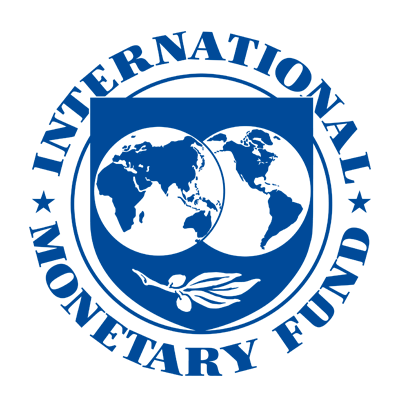Washington, DC: The Executive Board of the International Monetary Fund (IMF) concluded the Fifteenth Periodic Monitoring Report (PMR) on the Status of Management Implementation Plans (MIPs) in Response to Board-Endorsed Independent Evaluation Office (IEO) Recommendations. The Board meeting was held on November 12, 2025.
Since being instituted in January 2007, the PMR has been reporting on the status of implementation of Board-endorsed IEO recommendations. The Fifteenth PMR assessed the progress made over the past year on 48 actions contained in 11 MIPs. These include one new MIP issued in response to an IEO evaluation issued after the Fourteenth PMR.
The Fifteenth PMR concluded that substantial progress has been made, since the last PMR, with the implementation of management actions despite persistent work pressures. The pace of implementation observed in the Fifteenth PMR, with the closure of 24 actions (or 50 percent implementation rate), was comparable to that of the previous PMR (54 percent implementation rate) and much higher than that of the average of 35 percent per year over the last seven PMR monitoring cycles. Overall progress has been made largely across the board with implementation being particularly faster on actions envisaged in more recent MIPs, such as the MIPs in response to IEO Evaluations on the IMF’s Emergency Response to the COVID-19 Pandemic and IMF Engagement with Small Developing States. Four MIPs—IMF Collaboration with the World Bank on Macro-structural Issues, Behind the Scenes with Data at the IMF, the Role of the IMF as Trusted Advisor and the Board Categorization of Open Actions in Management Implementation Plans—will be retired from the PMR monitoring after the current cycle. The prototype slippages framework, which is anchored in the Fund’s Enterprise Risk Management Framework (ERM) and utilizes ERM tools and processes, has been formally adopted. This framework together with the Framework to Address Open Management Actions in Response to Board-endorsed IEO Recommendations approved in 2019 will further strengthen the evaluation follow-up process.
Executive Board Assessment[1]
Executive Directors welcomed the opportunity to discuss the Fifteenth Periodic Monitoring Report (PMR) on the Status of Management Implementation Plans (MIPs) in Response to Board Endorsed Independent Evaluation Office (IEO) Recommendations, and broadly endorsed the assessment contained in the PMR.
Noting persistent workload and budgetary pressures, Directors appreciated the pace of implementation of management actions, comparable to the last PMR and much higher than over the previous seven monitoring cycles. They also welcomed that the action plans are integrated in ongoing workstreams and reviews and acknowledged that the actions implemented are a balance of strategic and operational in nature. Directors noted that since the last PMR, overall progress has been made largely across the board, with implementation being particularly faster on actions envisaged in more recent MIPs and four MIPs to be retired from PMR monitoring after the current cycle. At the same time, some Directors saw scope for a more qualitative, risk based assessment of progress in implementing management actions.
Directors commented on some areas with completed actions that require continued attention. They broadly echoed the IEO’s concerns about whether the new mission chief and country team tenure metric sufficiently address continuity and tailored advice, particularly for FCS and SDS. Ensuring sufficiently long tenures was emphasized as vital for fostering trust and providing effective, country specific support. Some Directors stressed the need for continued progress in budget reporting to support strategic decision making and prioritization by the Board. A number of other Directors also encouraged continued efforts to enhance collaboration with the World Bank on macro structural issues. A few Directors also asked to revisit when resources allow the decision not to publish indices on CFMs, while a number of others expressed concerns about the retired action on the share of underrepresented nationals and women at senior levels. These Directors underscored the need for follow up across other workstreams to ensure the successful achievement of diversity targets.
Directors noted the progress made over the past year on overdue actions, and that over half of them are newly overdue. They stressed that continued prioritization of implementation efforts will be key to maintaining the high pace of implementation in an environment characterized by elevated workloads and multiple demands on Fund staff. Directors encouraged timely completion of overdue actions linked to the Capacity Development Guidance Note and the Review of Conditionality. A number of Directors also emphasized the need to ensure that the reformulated overdue action on social protection achieves the objective of effectively guiding the Fund’s involvement in this area.
Directors welcomed the proposal to implement permanently the prototype slippages framework which is anchored in the Fund’s Enterprise Risk Management (ERM) framework and utilizes ERM tools and processes. The Slippages Framework, together with the Framework to Address Open Management Action in Response to Board endorsed IEO Recommendations approved in 2019, will further strengthen the evaluation follow up process.
[1] At the conclusion of the discussion, the Managing Director, as Chairman of the Board, summarizes the views of Executive Directors, and this summary is transmitted to the country’s authorities. An explanation of any qualifiers used in summing up can be found here: http://www.IMF.org/external/np/sec/misc/qualifiers.htm.
